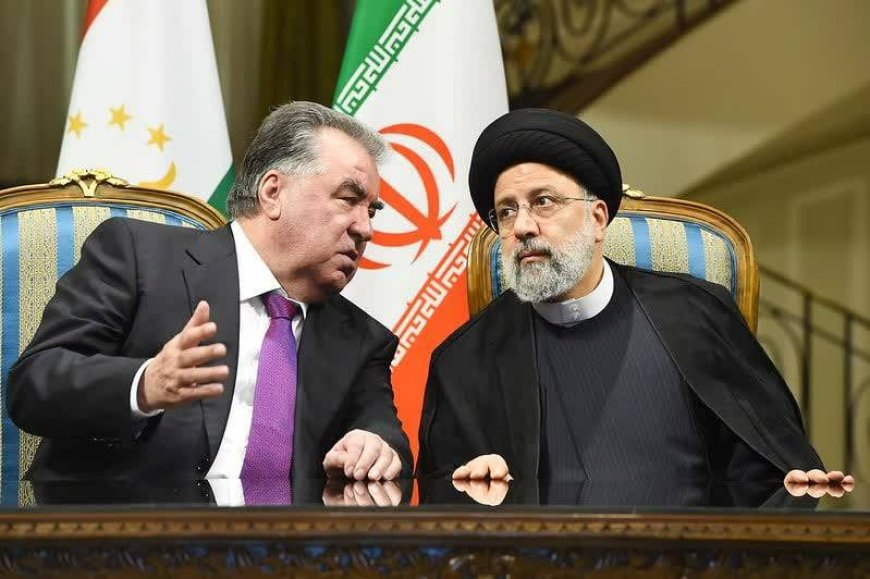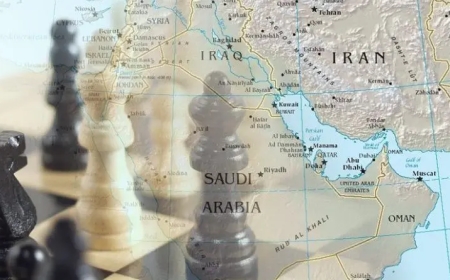A Tale of Two Nations: The Enduring Brotherhood between Iran and Tajikistan
A Tale of Two Nations: The Enduring Brotherhood between Iran and Tajikistan

Iran's strategic focus on Central Asia has been shaped by its geographical proximity and multifaceted considerations encompassing political, social, economic, geopolitical, and security aspects. The region's security landscape significantly impacts Iran's stability and instability, necessitating a thorough analysis of the evolving security dynamics.
Central Asia's Growing Importance for Iran's Security
Over the past decade, the changing concept of security and the emergence of new security dimensions have amplified Central Asia's significance for Iran's security interests. Consequently, Iran has become an integral part of the Central Asian security complex, which has implications for regional security and Iran's national interests.
Diplomatic Relations and Cooperation with Tajikistan
Iran's efforts to enhance diplomatic relations with Central Asian countries, particularly Tajikistan, have been instrumental in fostering regional cooperation. Despite cultural commonalities, Iran-Tajikistan relations experienced a cooling period since 2015. However, recent diplomatic consultations have resulted in a positive trajectory, culminating in Iran's consensus-based membership in the Shanghai Cooperation Organization, which has raised concerns in the West.
Security Cooperation and Counterterrorism Efforts
Iran and Tajikistan have established security cooperation memoranda, leading to the operationalization of joint efforts against terrorism. The exchange of information regarding the activities of Tajik nationals who have joined ISIS in Afghanistan or Syria has facilitated coordination and collaboration in countering terrorism. Additionally, agreements on prisoner exchange and combating drug trafficking have been successful.
Economic Exchanges and Strengthening of Cooperation
Economic exchanges between Iran and Tajikistan have witnessed a significant increase in recent years, surpassing previous levels by more than five times. This economic cooperation has contributed to the strengthening of ties and the promotion of unity between the two countries.
Addressing Security Challenges: A Joint Approach
The occurrence of a terrorist attack at the Shahcheragh shrine in Shiraz, perpetrated by a Tajikistan citizen, could potentially breed suspicion between Iran and Tajikistan. However, Tajikistan's immediate condemnation of the act and its commitment to maintaining strong bilateral relations demonstrate the resilience and strength of the two countries' bond. Cooperation on security matters will be facilitated upon an official request from Iran.
The West has historically sought to weaken Russia and China's positions in Central Asia, leading to long-term insecurity and chaos on Russia's southern borders. This approach aims to portray Iran as an insecure nation and create divisions among Asian countries. The West's agenda involves securing its interests by exploiting the resulting instability and chaos, potentially allowing for overt interference in the internal affairs of Central Asian countries.
Implications for Regional Security
Historical experience has shown that Western involvement in securing Central Asia's security leads to the growth of radicalism and terrorist groups. The presence of ISIS members from countries like Tajikistan, Uzbekistan, and Turkmenistan in the past emphasizes the need to address security challenges in the region. Against the backdrop of Afghanistan's situation and the United States' efforts to establish a military presence in Central Asia, concerns arise regarding the West's role in perpetuating insecurity.
Conclusion
The intensification of the "big game" in Central Asia, coupled with the strained relations between Russia and the West in Ukraine, has further complicated the region's security dynamics. Preventing the growth of radicalism and terrorist groups necessitates collective efforts to counter the potential consequences of Western-induced insecurity. Concerted action is required to ensure stability, peace, and cooperation in Central Asia, safeguarding the interests of Iran and other regional actors.













































